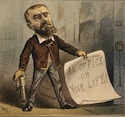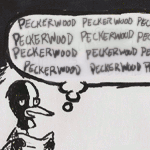|
If the internet was going to be closed from this, it would already be so - this is common practice for the large internet companies.
|
|
|
|

|
| # ? Apr 29, 2024 01:44 |
|
Install Windows posted:If the internet was going to be closed from this, it would already be so - this is common practice for the large internet companies. Perhaps the internet is already closed, and I'm just making all these posts myself on a local server as some sort of elaborate MPD coping mechanism. Check and mate, other Chokes personalities.
|
|
|
|
Chokes McGee posted:Perhaps the internet is already closed, and I'm just making all these posts myself on a local server as some sort of elaborate MPD coping mechanism. Nobody was supposed to know! https://www.youtube.com/watch?v=hf5FRPfGiC8
|
|
|
|
Isn't the main issue that companies could start charging extra to use certain sites now! Regardless these rules should not be changed, as has been pointed out, because the courts told the FCC how to fix the current ones.
|
|
|
|
Rygar201 posted:Seriously Congress won't allow gitmo to close and Republican appointed judges made this ruling. At the end of the day Congress doesn't have the power to prevent the President from ordering movement of the troops (and the prisoners under their control). He is the Commander in Chief and has ultimate control over the military, Congress being able to take underhanded control of the military by micromanaging funding and cutting off funding for individual troop orders that they disagree with pretty much undermines the whole "commander in chief" bit. Can you imagine how that would go in an actual war? Republicans demand that Fire Base Charlie remain manned and cut off funding for allowing troops to retreat from that position? Much like the War Powers Resolution (actually, the exact same thing as the WPR), it is probably an unconstitutional approach, but there's little impetus for anyone involved to test it. Congress is happy to pretend they have a power and score some political points, and it's not a battle Obama is willing to have for the sake of a few dirty foreigners with no real power or leverage. The Supreme Court would punt on the matter as a political question, so nothing would be resolved anyway. Of course unwillingness to intervene for the weak and powerless on key matters like habeas corpus is a black mark on an administration, but it's also par for the course in politics. Similarly the FCC is an agency under Executive control and does have a fair amount of latitude in how they interpret the law (which services fall into which regulation category, etc). The rulings against net neutrality aren't under Obama's control, but how the agency responds to them absolutely is, and the FCC just knuckled under. Paul MaudDib fucked around with this message at 17:10 on Apr 24, 2014 |
|
|
|
Install Windows posted:If the internet was going to be closed from this, it would already be so - this is common practice for the large internet companies. And remember, we don't actually know what the rules are; we just know that a reporter at the Wall Street Journal thinks they're inconsistent with net neutrality. As we saw with Netflix, that perception is not always accurate.
|
|
|
|
Paul MaudDib posted:At the end of the day Congress doesn't have the power to prevent the President from ordering movement of the troops (and the prisoners under their control). Well, if your goal is anything but "execute them immediately" or "release them immediately" then you're going to have to put them somewhere for the intervening negotiations/trials/etc. That is something Congress can and does gently caress around with.
|
|
|
|
FlamingLiberal posted:Isn't the main issue that companies could start charging extra to use certain sites now! That's exactly what the FCC is doing, though... They're fixing the current ones in the way the court told them to. They have to do it by issuing a new NPRM as a procedural issue, but fundamentally everything made public so far suggests they're taking the approach they were told to take.
|
|
|
|
In realistic terms, what exactly is the worst case scenario of all this going down? If someone has a link or something that explains it, that'd be cool, too.
|
|
|
|
Mr. Lobe posted:In realistic terms, what exactly is the worst case scenario of all this going down? If someone has a link or something that explains it, that'd be cool, too. Look at your cable bill and packages, then apply that to domains and the ability to access international subnets.
|
|
|
|
Mr. Lobe posted:In realistic terms, what exactly is the worst case scenario of all this going down? If someone has a link or something that explains it, that'd be cool, too. An asteroid hits and kills everyone.
|
|
|
|
computer parts posted:An asteroid hits and kills everyone. Dammit Jeb! 
|
|
|
|
computer parts posted:An asteroid hits and kills everyone. Nuts! I better call and write my congressman pronto.
|
|
|
|
So I found this article today. http://www.huffingtonpost.com/timothy-karr/strike-two-obamas-second_b_5205200.html quote:When President Obama pledged to appoint a Federal Communications Commission chair who would protect Net Neutrality, we had no reason to doubt he'd find the right person for the job. Short summation: So long as they don't purposefully slow things down, ISPs can give preferential treatment to themselves and others who can or will pay for it. They are not allowed to purposefully slow down any one specific group, but creating an artificial scarcity of bandswidth through legal means (like eating it up with their own transfers at their allowed preferential higher data rates) is entirely feasible. The actual new "regulations" are coming in May apparently, so we won't know until then things like whether or not they can flat out refuse to give a company like netflix preferential treatment and whether or not there will be any caps on the amount of bandwidth they are allowed to eat up for preferred customers. So yeah. The FCC refused to classify the internet as a public utility to avoid the regulation there and has basically given up trying to regulate under the current head. poo poo is hosed up and bullshit.
|
|
|
|
The NPRM may be voted on in May, but if so, it would just be a vote on whether to propose that as the rule - the FCC can't make a rule without opening it to public comment for a reasonable period, which is usually interpreted to mean at least 60 days. (Everything else in the prior post is probably wrong too.) Using preferential treatment of one provider to artificially slow down others would effectively violate the anti-blocking rules, so it'll be a no go anyway, even if it's commercially reasonable to provide higher speeds to their traffic under the anti-discrimination rule. You can pay for positive treatment, but in doing so, you can't reduce others below where they would otherwise have been without running afoul of the rewritten rules (read the Circuit's decision again, since the FCC seems to have adopted exactly what the court told them to.) Basically, a bunch of people who freaked out (incorrectly) about the court decision are now freaking out over a rule they haven't seen which likely doesn't say what they think it says.
|
|
|
|
Kalman posted:The NPRM may be voted on in May, but if so, it would just be a vote on whether to propose that as the rule - the FCC can't make a rule without opening it to public comment for a reasonable period, which is usually interpreted to mean at least 60 days. Could you please link me to information about the current anti-blocking rules? I've read a bunch of articles about the past decision, and as I understand it the blocking rules have been struck down until the FCC reclassifies broadband providers or appeals the decision to a higher court, and this new rule is exactly what it seems, it enshrines the power to charge for different speeds. I guess, yes, it's possible that this will set down some kind of baseline service that must be provided. Of course, that potentially lets ISPs just monetize any improvements to the infrastructure, they could set a baseline and then just invest in better infrastructure (finally) and essentially own every bit of bandwidth above what is required to provide their "baseline". As bandwidth needs increase that has the same net effect, creating artificial scarcity. Potentially. And the potential for quasi-legal abuse, loopholes, etc is still there. If this was implemented and they did create an artificial bandwidth shortage now, it would probably take a class action lawsuit to bring it to light. The FCC process information I did not know, though. I was under the impression that a new rule was being announced, rather than proposed, and that we were basically going to have to wait until May to find out how bad the new rules that were already OKed were going to be. :Edit: Found the text of the proposal so far, reading... :Edit 2: I really hope the proposal in May outlines exactly what the definitions of blocking and limiting are going to be and how they will be allowed or required to handle traffic and apportion bandwidth. Congestion already exists, plenty of people have to deal with slow internet during peak useage times. If they don't massively increase the available bandwidth/transfer speeds across the board, increased priority for one connection means someone else's packets are going to wait. If they do invest in infrastructure then it's going to be a matter of how much leeway they get to do whatever the hell they want with it and if the FCC has the presence of mind to make regulations that take both developing infrastructure and the future of increased bandwidth needs into account. I don't really trust the FCC that far and think this is worth getting a little worked up over. Too much potential for abuse. TheSpiritFox fucked around with this message at 20:59 on Apr 25, 2014 |
|
|
|
Read the DC Circuit decision - they basically said that the existing anti blocking rule was fine in substance but the FCC hadn't properly justified it until they were already in court. So, it's technically been struck down but there's basically zero chance the FCC won't reinstate it with the NPRM. People really misunderstood the DC Circuit decision. They think Verizon won. It was a Pyrrhic victory at best. Edit: basics of administrative rule making procedures 101. 1) Agency issues an NPRM. NPRM must contain the text or the substance of the proposed rule. If they don't contain enough substance for people to effectively comment on it, final rule can be struck down. 2) Comment period. Public comments. 3) Review period. Agency reviews comments. Agency decides what the final rule should look like (or puts out a new NPRM for further comment.) 4) Final Rule issues. Contains the rule as well as responses to the comments received. At the May meeting, the FCC will meet to discuss issuing an open Internet NPRM. That means the final text for even the proposed rule won't be set until then, and any approved text is a long way away. Kalman fucked around with this message at 22:52 on Apr 25, 2014 |
|
|
|
Kalman posted:Read the DC Circuit decision - they basically said that the existing anti blocking rule was fine in substance but the FCC hadn't properly justified it until they were already in court. So, it's technically been struck down but there's basically zero chance the FCC won't reinstate it with the NPRM. There's a reason people misunderstand that ruling, though. All too often what's in the interest of the citizenry gets trampled by the interests of industry. The FCC is certainly no stranger to that. You seem to have some awfully optimistic expectations on what the future holds here, which I'm not sure history bears out. There's been a bit of a hyperbolic reaction to the ruling, but it's understandable. At the very least that reaction forces more attention on the issue. I'd be curious to hear if you know more about how the FCC had not properly justified the rule -- though you'd think Ajit Pai, FCC Commissioner and former Associate General Counsel for Verizon, might've been better prepared. When Tom Wheeler, former CEO of the Cellular Telecommunications & Internet Association and former President of National Cable Television Association (NCTA) is Chairman of the FCC, it calls a lot into question. Which of the current commissioners will go on to enjoy well-paid jobs in the industries they were supposed to regulate, afterwards? All too often the members of these regulating bodies make decisions which seem to do more for their bank accounts after they move on, than public interest. There's plenty of reason to be highly skeptical. That said, it's certainly important to watch as it play out. Everyone should definitely comment when that opens up; if they care enough be reading about it.
|
|
|
|
History does bear out Kalman's view, because of the fact there's been just about no enforced restrictions on the behavior people seem to fear, yet that behavior has not come to pass over a good 20 years of commercial internet service. It barely even happens in other countries at that (perhaps not at all? but it seems like it must happen somewhere just by sheer volume of cases). Other methods have long been used to do similar things, methods which no one seems to know about or notice, frankly, even though they have major benefits for the parties involved.
|
|
|
|
They'll all move on to jobs in those industries because that's literally the thing they are best qualified for. The revolving door isn't just about rewarding people - Wheeler isn't really qualified to work outside of the telecom/regulatory field. So his options are basically work for a telco, work for a telco industry association, or work for a public interest group. (The latter doesn't pay nearly as well, which is why it's a far less common approach.). Or I guess go be a CEO but that kind of raises the same revolving door concerns. The door revolves because the people you deal with also happen to be the people you're best qualified to work for when politics change and you have to leave government. If you want to know how the FCC didn't justify the rule, read the DC Circuit opinion which explains exactly how they failed to justify the rule. And Ajit Pai couldn't have helped the FCC be more prepared because the rule was enacted before he became a Commissioner (2012). The failures in justification occurred in 2010, when the rule was enacted, and 2011, when the rule was challenged and briefing began. The FCC properly justified anti-blocking in front of the DC Circuit, but you generally can't raise new arguments on appeal - which is exactly what the DC Circuit told them.
|
|
|
|
Kalman, to me this FCC piece seems to basically back up what you've said. The FCC are coming back to rejustify the right way and everyone who flipped out about r.i.p. net neutrality was being a little knee-jerk. But this PK piece still finds issue with the language of the FCC. The Public Knowledge article isn't so much technical as it is speculative, could you elaborate a little on the Title II option they advocate? The basic difference seems to be between relying on a "'commercially unreasonable' test" and banning "unjust and unreasonable discrimination" on internet traffic. Is there something critically lacking without that last bit? Unjust and unreasonable discrimination could easily be part of a commercially-unreasonable test right? I can't tell if PK has a good point or are just really really scared about the issue as a whole.
|
|
|
|
FunkyFjord posted:Kalman, to me this FCC piece seems to basically back up what you've said. The FCC are coming back to rejustify the right way and everyone who flipped out about r.i.p. net neutrality was being a little knee-jerk. As we all know, the FCC and other government agencies never ever fluff up horrific bullshit.
|
|
|
|
FunkyFjord posted:Unjust and unreasonable discrimination could easily be part of a commercially-unreasonable test right? The issue is the words signal different kinds of tests with different deference to the agency. Under the test for common carriers, the FCC could make a blanket ruling on prioritization deals. i.e. "Pay for priority systems are generally unreasonable." Under the latter, it's going to have to examine the particular prioritization deal using some kind of more flexible test. The article doesn't like that, because it necessarily means there's some kind of prioritization deals that can survive. The FCC Chairman is saying the test they will come up with won't be letting much through and any deals which do survive will be benign. The distinction is coming from some key language from Cellco, the case repeatedly cited in Verizon when saying "do it like this". The DC Circuit distinguished between standards that turn a carrier into a common carrier, and standards that, although they might be something that the FCC would apply to common carriers, do not of themselves turn a carrier into a common carrier. Forcing general, nondiscriminatory offers sounds like the former, flexible tests allowing room for individualized negotiation sound like the latter. If you're curious about the factors determining what is "commercially reasonable" under the other rule, they are the bullet points on page 42 here. eviltastic fucked around with this message at 03:10 on Apr 30, 2014 |
|
|
|
Title II means "we treat you like you were a copper telephone carrier and you have to obey all those rules." That's good in some ways (FCC can impose stronger net neutrality), and bad in others (significantly increased requirements re expansion planning and similar slowdowns.) (As I said in another thread, careful what you wish for - one of those rules is CALEA compliance, which would force net companies to provide all necessary assistance to the FBI to tap your communications. Yeah, they may or may not already do that, but at least there's no legal obligation to make it as easy as possible.)
|
|
|
|
I understand the net neutrality idea that nobody should be able to have a say on what you do on it but at the end of the day, are't we using privately owned infrastructure to access it? At what point does the rule of "you will use the poo poo I own the way I want" stop applying? Let's say they get firm rules where they cannot throttle any type of content. Don't you guys think they will just up the prices so they can deal with the large increase of money needed to constantly upgrade the architecture because we consume more and more data? Since the US backbone is basically owned by a handful of entities, why would't they just say "gently caress you, your bill will all increase by XX% because we now have to install a shitton more cable/fiber lines" and then everybody is stuck with higher prices? Do we all have to believe they won't offer a capitalist solution to this and let people who want more steady bandwidth to pay more for a better service? The price for 20 Mbits for example could go up but whoever don't really see a need for it could get on a 10 Mbits plan instead. More fine grained pricing structure to make the heaviest user the biggest payers.
|
|
|
|
supersnowman posted:Let's say they get firm rules where they cannot throttle any type of content. Don't you guys think they will just up the prices so they can deal with the large increase of money needed to constantly upgrade the architecture because we consume more and more data? Since the US backbone is basically owned by a handful of entities, why would't they just say "gently caress you, your bill will all increase by XX% because we now have to install a shitton more cable/fiber lines" and then everybody is stuck with higher prices? The thing is, any such price increases have already happened, long ago. Also, we have shitloads of unused but relatively easy and cheap to restore backbone connectivity laying about due to overbuilds in the dotcom bubble.
|
|
|
|
supersnowman posted:I understand the net neutrality idea that nobody should be able to have a say on what you do on it but at the end of the day, are't we using privately owned infrastructure to access it?... This is a highly dubious proposition. The internet got its start as a result of various federal agencies and public universities setting up networks for the sharing of information and there's arguably been federal money involved in the construction of the infrastructure at every single step of the way.
|
|
|
|
Install Windows posted:The thing is, any such price increases have already happened, long ago. Also, we have shitloads of unused but relatively easy and cheap to restore backbone connectivity laying about due to overbuilds in the dotcom bubble. All of that probably still belong to the same few players. The price could still go up as they figure their plans were wrong all along. They probably didn't predict people would consume such high volume of constant bandwidth like streams and other related stuff. They probably made their plans based on what the usages was back then and will want to recoup what they are throwing out. If the big players raise the price as a block, the "independent" ones won't really have a choice but to follow since they rent bandwidth on the big guys network anyway so their operating cost could go up quite fast to rent at the new price. Buried alive posted:This is a highly dubious proposition. The internet got its start as a result of various federal agencies and public universities setting up networks for the sharing of information and there's arguably been federal money involved in the construction of the infrastructure at every single step of the way. No matter who invented/created it, someone still owns the pipes we use. Do the govt own part of it or is it completely privately owned by now? Theoretical question : Would it still be considered neutral if they were to limit based on type of usage but not on the source? Like throttle down streaming no matter where it is from because it's streaming without any look on where/who it comes from even if it's your own content as a content provider.
|
|
|
|
They knew, and were given federal money for massive upgrades. They pocketed it instead. Also discussed earlier there is a possibility of artificially slowing sites down that don't pay for a perceived fast lane even though the pipe can handle it. Aeka 2.0 fucked around with this message at 06:03 on May 1, 2014 |
|
|
|
Aeka 2.0 posted:They knew, and were given federal money for massive upgrades. They pocketed it instead. No, this is not actually going to be legal under the new rules. It'll be legal if they don't adopt the new rules though!
|
|
|
|
Doesn't this mean that ISPs are now responsible for child porn going over their wires?
|
|
|
|
supersnowman posted:I understand the net neutrality idea that nobody should be able to have a say on what you do on it but at the end of the day, are't we using privately owned infrastructure to access it? At what point does the rule of "you will use the poo poo I own the way I want" stop applying? (2006-2007) http://www.pbs.org/cringely/pulpit/2007/pulpit_20070810_002683.html http://www.newnetworks.com/ShortSCANDALSummary.htm http://www.smartergeek.com/2008/02/03/the-broadband-scandal/ http://www.techdirt.com/articles/20060131/2021240.shtml quote:The $200 Billion Rip-Off: Our broadband future was stolen. quote:The case is simple: Do you have a 45 Mbps, bi-directional service to your home, paying around $40? Do you have 500+ channels and can choose any competitive service? You paid an estimated $2000 for this product even though you did not receive it and it may never be available. Do you want your money back and the companies held accountable? quote:Now here is the really interesting part of this whole deal. Ever heard of the “$200 Billion Broadband Scandal“? Let me summarize then. Basically – back in the mid ’90s the telecos (telephone companies) were supposed to deploy fiber and fiber/coax networks to millions of homes by the year 2000 as part of the Telecommunications Act of 1996. We are supposed to have 45 Mbs connections. All 50 states and the District of Columbia contracted with their local telecommunications utilities for the build-out. Guess what? We don’t have millions of homes with fiber do we? They all failed. The telcos made billions. quote:And where did the money go? Not towards what was promised. Bruce Kushnick, who we've written about before is now coming out with a book that details how the telcos scammed approximately $200 billion from all of us (about $2,000 per household), promising fiber to every home with symmetric 45 Mbps speeds and an open access model that would allow anyone to offer competitive internet services over that connection. This is a promise that they have not kept... though, they have kept our money. That fiber was supposed to be delivered this year (earlier in other cases), but it's not coming. The fiber that telcos are finally starting to offer is much more expensive, much slower, and locked down. In fact, after all of these promises, remember that the telcos said they wouldn't offer fiber at all, unless the FCC promised not to require them to let others offer services on it. Yet, for all of this, there's been very little outcry, or very little discussion -- and the latest moves concerning network neutrality show that the telcos are looking to take more of our money and deliver less yet again. This is a long term strategy. They knew they would win eventually. Buying politicians is cheaper than building things. http://arstechnica.com/tech-policy/2014/04/washingtons-revolving-door-cellular-lobby-and-fcc-have-traded-leaders/ quote:Washington’s revolving door: Cellular lobby and FCC have traded leaders
|
|
|
|
FRINGE posted:The internet is ours. Literally nobody who doesn't remember it from when it happened believes me when I bring this up. They're incredulous that this could've been allowed to happen. It's such a huge-scale crime.
|
|
|
|
Just out of curiosity - people who call Tom Wheeler a former cable lobbyist rarely know when it was. Do you know when he lobbied on behalf of the cable industry?
|
|
|
|
Kalman posted:Just out of curiosity - people who call Tom Wheeler a former cable lobbyist rarely know when it was. Do you know when he lobbied on behalf of the cable industry? The Cable Center - "The Nonprofit Educational Arm of the Cable Industry" posted:From 1976 to 1984, Mr. Wheeler was associated with the National Cable Television Association (NCTA), where he was president from 1979 to 1984. After several years as CEO of new technology start-ups, including the first company to offer high speed delivery of data to home computers and the first digital video delivery service, Mr. Wheeler was asked to take over the Cellular Telecommunications & Internet Association (CTIA). He served as CEO of CTIA from 1992-2004 and was selected to the Wireless Industry Hall of Fame.
|
|
|
|
So he was a cable lobbyist 20 years ago. Does anyone think that the cable industry might have changed a bit since then and his "lobbied for the cable industry" past might not actually be as relevant as his being a tech VC for the past ten years, or is it just me?
|
|
|
|
Kalman posted:So he was a cable lobbyist 20 years ago. 30 years ago.
|
|
|
|
computer parts posted:30 years ago. gently caress me I cannot do math anymore.
|
|
|
|
Kalman posted:So he was a cable lobbyist 20 years ago. Absolutely nothing relevant to today's aggregation into "natural monopolies" happened in the 80's. Nothing at all.
|
|
|
|

|
| # ? Apr 29, 2024 01:44 |
|
CTIA is also a lobbying gimmick.quote:CTIA – The Wireless Association is an industry trade group that represents the international wireless telecommunications industry. Its members include cellular, personal communication services and enhanced specialized mobile radio providers and suppliers, and providers and manufacturers of wireless data services and products. Obamas new FCC muppet has been working on behalf of the industry, and against regulations, from the 70s until now. Guess which guy gives no poo poo about public access, net neutrality, or consumer rights: quote:In recognition of his work in promoting the growth and prosperity of the cable television industry and its stakeholders, he was inducted into the Cable Television Hall of Fame. In recognition of his work in promoting the wireless industry, he was inducted into the Wireless Hall of Fame. ATTs head dickhead (Cicconi) and Comcast (using the Royal "We") are pretty happy with an anti-regulation stooge grabbing the seat though: quote:AT&T, which lost its bid to acquire T-Mobile during the reign of outgoing FCC Chairman Julius Genachowski, and which tried to implement consumer-unfriendly policies like blocking FaceTime video chats on some data plans, called Wheeler an "inspired pick to lead the FCC." Now lets count the minutes before someone resorts to CTIA PR about Amber Alerts...
|
|
|































